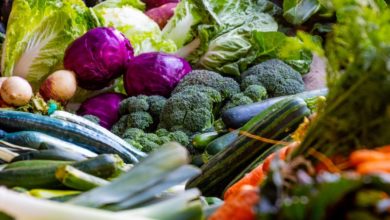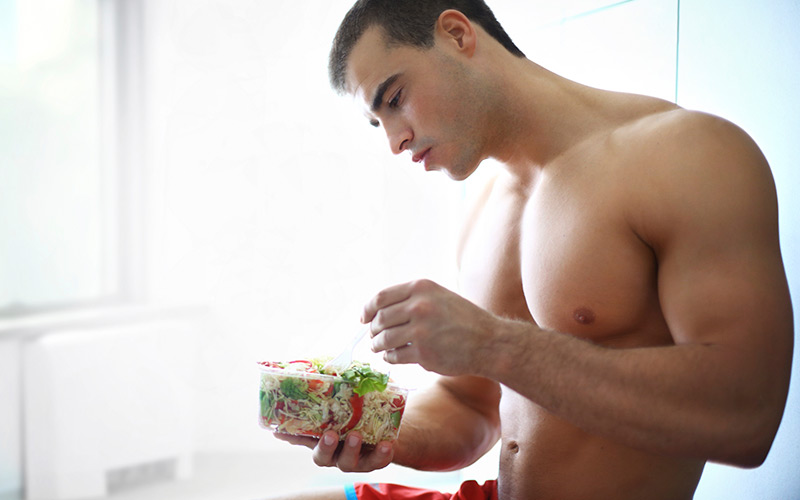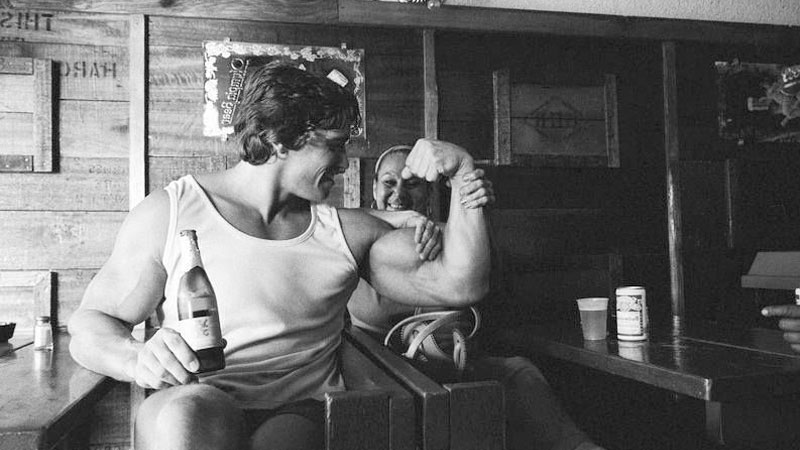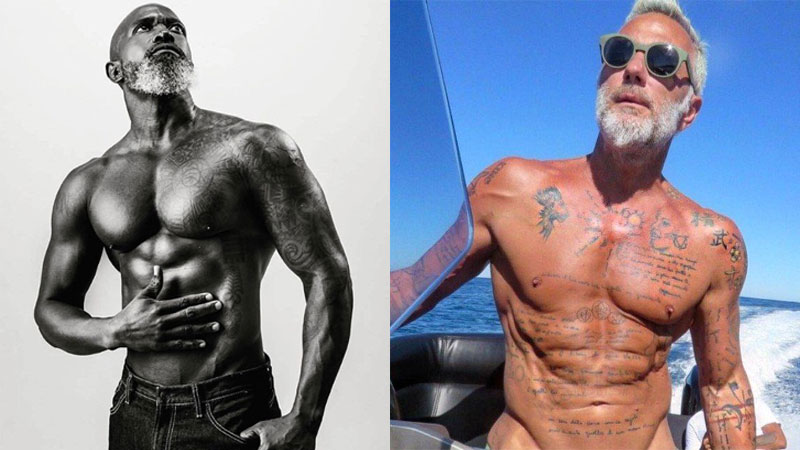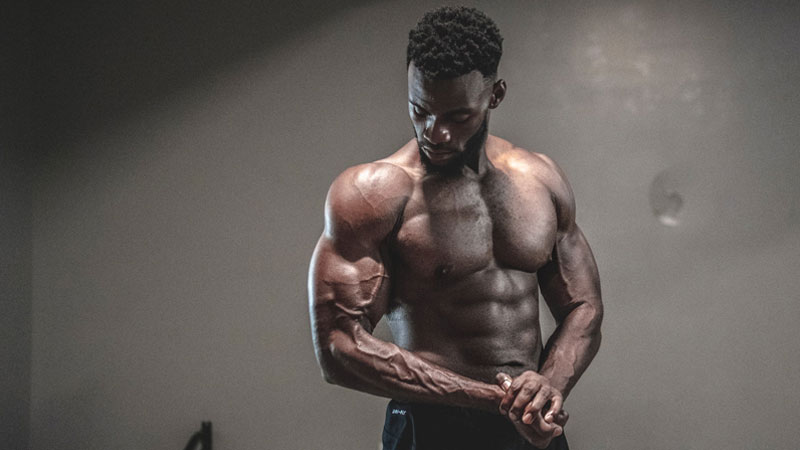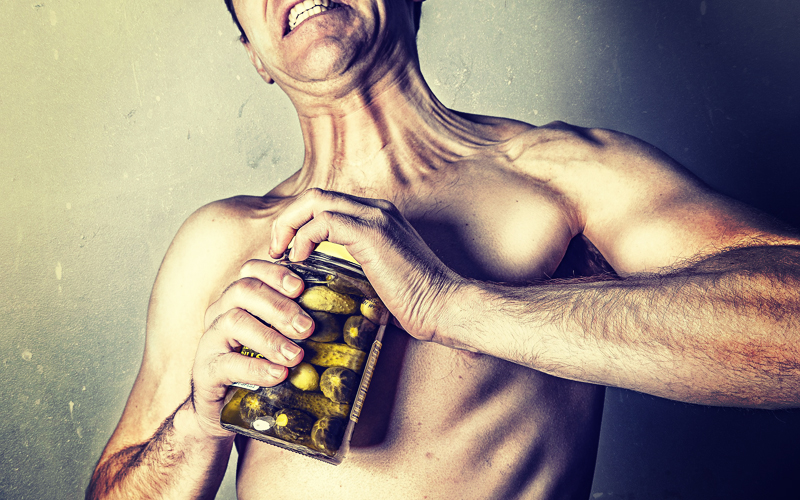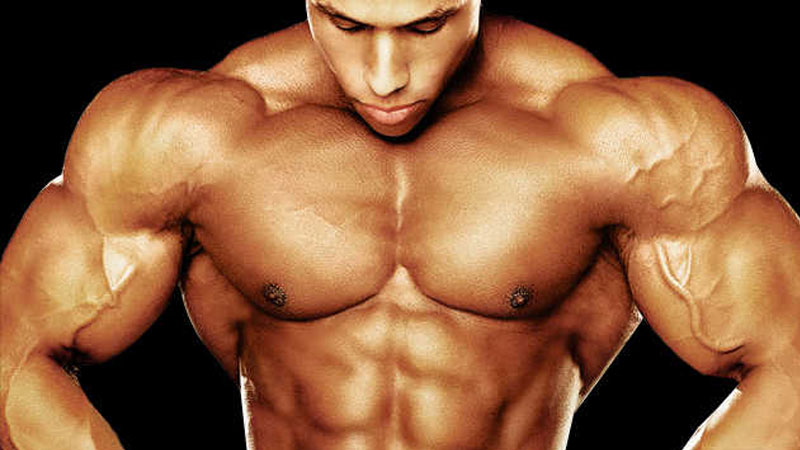
You’ve been told for years and years that more muscle means you’ll burn more calories and get shredded in the process. But is that really the case? Probably not. We take a look at the science and answer that very question.
“Bro, getting jacked means a higher metabolism. You’ll get dick skin shredded and burn a sh*t tonne of calories all day long”.
You’ve probably heard something like this before. That having more muscle means your body ramps up energy expenditure, calorie burning and fat loss – even when you’re at home having a brewski with your feet up.
In this article we delve balls deep into the science of muscle mass and metabolism and tell you why more mass doesn’t mean you can take your foot off the gas when it comes to dieting.
Energy Expenditure – How Exactly Do You Burn Calories?
We get energy from food. Whether it’s from a nice garden salad in some posh hipster vegan place, a protein shake after a gut-wrenching workout or a dirty burger down a back alley in Detroit. All foods provide calories.
And it’s the energy from calories that you need to function, think, move, run and lift.
You use the energy in your body in the following ways:
Basal metabolic rate (BMR) –
This refers to the calories needed to:
- Maintain muscle and bone mass
- Power your brain and nervous system
- Regulate your heart rate and breathing
- Ensure good liver and kidney function.
If you were to just sit still and not move all day (looking at you, college students), all of your energy expenditure would be from your BMR.
For example, if a 200 lb dude sat at home all day watching Pumping Iron on repeat, he’d burn just under 2,000 kcal.
So, if you’re inactive you have to rely on this as your sole contributor to daily energy expenditure.
Non-exercise activity thermogenesis (NEAT) –
Every time you move, twitch, scratch your ass, walk, dance and doggystyle f*ck you’re using calories above and beyond your BMR.
All movement after BMR adds to that 2,000 kcal base.
The more ‘active’ you are, the higher your NEAT is… and your calorie burn throughout the day. General daily activity can burn a surprisingly high amount of energy.
Exercise thermogenesis –
Hitting the gym for cardio day or a bar-bending, dumbbell-crushing strength session obviously burns calories. The longer or harder your workout is, the more calories you burn.
Note: Taking pictures of yourself in the gym burns zero calories so don’t be a douche. Your 200 followers don’t give a sh*t about your sorry-ass deadlift.
Thermal effect of food (TEF) –
In order to obtain the small building blocks of energy from food, your body needs to break it down through chewing, digest it using mechanical and chemical processes, and absorb each nutrient using complex physiological processes.
And that takes energy.
No wonder that ass baby you just delivered in the gym toilet was a struggle. It’s the result of some deep burn energy expenditure (and last night’s spicy chili).

Just the tip: The main way your body burns energy is from your BMR, but the more active you are (through general movement and exercise), the higher your total daily energy expenditure will be.
[/infobox]How Many Calories Does Muscle Actually Burn?
Your BMR accounts for the majority of your daily calorie burn.
When you total up energy expenditure over a full day, your BMR is responsible for around 60-75%. NEAT can account for as much as 30%, which is justification enough for being on your feet and constantly trying to be active.
Unless you’re a pro athlete training 20-30 hours per week, exercise only accounts for 10%.
BMR contributions by organ – does muscle even burn many calories?
According to available research, if you break down your BMR using a tool called Ki values, this is how it looks:
- Heart – 181
- Kidneys – 181
- Brain function – 109
- Liver – 90.9
- Muscle – 5.9
- Fat mass – 2
The numbers refer to the number of calories per lb of body weight per day.
As you can see, muscle doesn’t really account for much of your BMR at all. If anything, the key to burning more energy would be to grow another brain or kidney (joke)!
In fact, even the authors of the study suggested that “In contrast, the Ki value of skeletal muscle is only 1/35 that of the heart and kidneys”.
Your liver, heart, kidneys, and brain make up as much as 80% of BMR. Even though it only makes up ~10% of your body mass.
That doesn’t leave much for muscle – even though in contrast it makes up 40% of your total mass.
Dr Oz (who’s an absolute ass and should crawl back into his hole never to be seen again) once said in a presentation that muscle “burns 50 times more calories than fat”.
Now, we know this guy peddles more sh*t than a scat porn party, but even that takes things to new heights.
The actual science tells a different story. It’s only 3 times more. Douche.
Does building muscle increase metabolism? The myth of getting ripped by building more muscle
Once upon a time, there was a saying echoed in whispers throughout every gym in the US.
“A pound of muscle burns an extra 50 calories”.
This led to bros around the country hitting the weights to get shredded. And while lifting is never a bad thing, it’s not the be all and end all of a single-digit body fat quest.
Packing on muscle to burn fat might make sense at first glance, but let’s look at it like this. If you gain 10 lbs of muscle (which is completely doable) that’s only an extra 500 kcal per day for sitting on your ass.
That’s a huge number – and around a 25% for our 200 lb dude we used as an example when discussing the role of BMR.
500 kcal is the equivalent of a plain bagel with cheese, or four slices of bacon. Not exactly a huge amount when it comes to food intake.
If we go back to the evidence that muscle burns just below 6 kcal/lb/day, that’s actually a much lower number.
So, weight training for fat loss isn’t great?
This is where we have to be careful putting things in black and white. While more muscle doesn’t mean you’ll torch your metabolic rate and become a human calorie-burning furnace, weight training is pretty important for fat loss.
The benefits of muscle building exercise to burn fat include:
- A (be it small) contribution to total daily energy expenditure at rest
- More muscle does boost energy burn during exercise, even if the difference at rest is small
- Reduced fatigue when performing NEAT and cardio activities
- Better sports performance, fitness, and strength
- Improved insulin sensitivity which may help control calorie intake
How Many Calories Does Muscle Burn vs Fat?
One thing’s for sure. Fat does actually burn calories – around 2 kcal/lb/day.
It’s not as high as the 5.9 kcal/lb/day that muscle does, but it’s not a million miles away.
Does this mean you should start storing extra fat to burn…erm, fat? No, of course not. Every gram of fat you store in your body contains 9 kcal.
So it’s best to not rely on fat stores to burn energy.
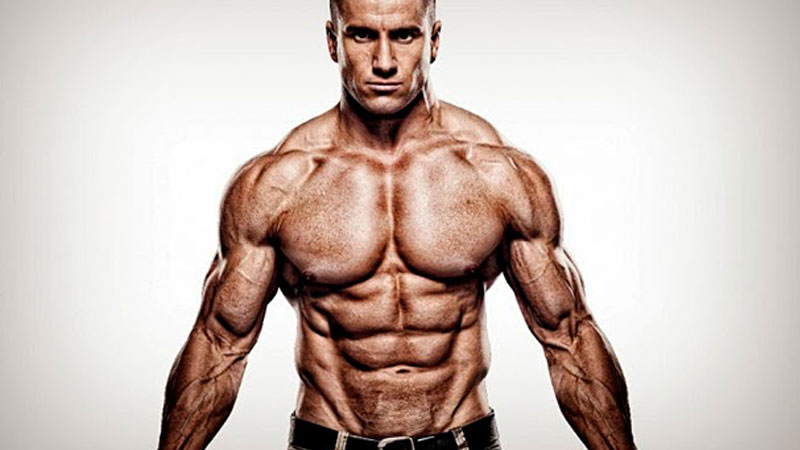
Bottom Line: You can’t rely on building muscle to turn you into a fat burning machine.
[/infobox]Summary – Does Having More Muscle Burn Calories?
There’s always been a theory that ramping up muscle mass leads to a significantly higher metabolic rate.
And while muscle does elevate calorie burning, it’s not actually by a lot – only 6 kcal per pound.
Where next?
If you enjoyed this article check out some of our other science-led articles – because gains and knowledge is a powerful combo:

